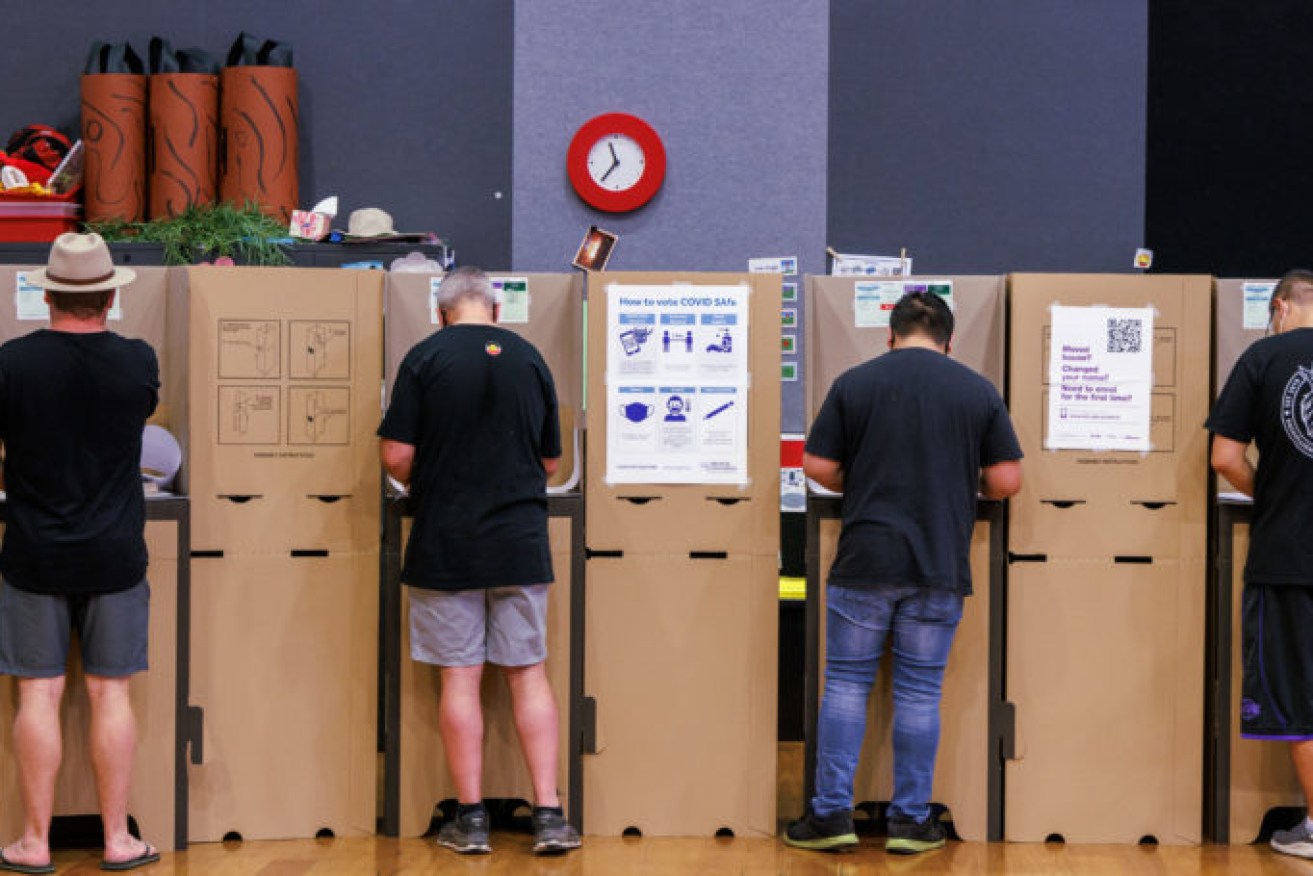Helping more young voters stand up and be counted
Up to one third of 18-year-old South Australians won’t vote in this Saturday’s federal election, but there are more serious factors behind youth under-representation than apathy, argues Helen Connolly.

The Adelaide City Council say if compulsory voting is introduced, voter participation could increase and in-person voting could be introduced for council elections. Photo: Tony Lewis/InDaily
An estimated 1.2 million South Australian’s will cast their vote in the federal election this coming Saturday 21 May, but approximately 30% of eligible 18-year-olds across South Australia will not be amongst them.
To put this in context, 18-year-olds make up 25% of South Australians who are not enrolled, while comprising only 1.5% of the State’s total eligible voting population.
Current headlines are celebrating an overall enrolment rate of 98% across Australia as a triumph of democracy and a world beating statistic. However, we know that as a cohort, it takes young people until the age of 25 to match the enrolment rates of all other adults.
It’s an issue that is unlikely to get any attention amidst the preoccupation with corflutes and campaigns, but the concerning low rate of 18-year-olds who will cast their vote this Saturday means there will be a significant lack of representation at the ballot box from this important age group.
Why the lack of engagement by 18-year-olds? And why, in one of the most important parts of democracy, is it given so little attention?
We can’t simply point to ambivalence or apathy on their part. There are other barriers that stop young people from voting that need to be addressed.
We know young people care deeply about issues such as the environment and working towards a fairer more equitable society. We know too that young people want more practical opportunities to make a difference, and to engage in their communities in contemporary ways.
However, they also report having difficulty getting motivated about politics and voting, mainly because they don’t see policies that are relevant to their lives. It perhaps shouldn’t surprise us to hear that young people are becoming increasingly disillusioned with mainstream politics. But it should concern us.
At the recent 2022 State election, 18 to 24-year-olds had the lowest enrolment figures and lowest participation rate of all age groups. They also reported the lowest levels of confidence about completing their ballots.
Many young people are unaware that when they turn 18 they need to put themselves on the electoral roll and vote in each state and federal election that follows
This combination of a lack of trust and a lack of know how needs to be addressed. As adults it’s our job to prepare young people for adulthood, with civics and citizenship competency part of ensuring they have capacity for full participation in our democracy.
South Australia’s school-based competency scores in civics and citizenship sit below national and international standards. This means young people here don’t have the confidence, knowledge, understanding or skills they need to develop their civic identity. The potential consequences of these low levels of civics proficiency are disengagement from democracy’s ideals and values, and ultimately from its processes.
Although there is a mechanism for young people aged 16 or 17 years to pre-enrol to vote, the majority don’t know about this option, and those who do are not taking it up. In fact, many young people are unaware that when they turn 18 they need to put themselves on the electoral roll and vote in each state and federal election that follows.
As it stands, for some 18-year-olds the first time they might hear about their requirement to vote could be a letter from the Australian Electoral Commission (AEC) asking them why they haven’t. Previous low participation rates saw a record number of fines issued to young South Australians by the AEC following the 2018 election. Sadly, it looks as though the same scenario will prevail this May. What a way to be introduced to exercising your right to vote as an Australian citizen!
Surely this is the kind of experience we want to avoid at all costs if we are to have a democracy in which young people are encouraged to engage, particularly one that has a reputation for being one of the finest in the world?
In other countries, falling participation rates from this age-group have been recognised and addressed. New Zealand has allowed enrolment on polling day, removing a barrier that resulted in an immediate 20% increase in young voter participation. Advertising in places where young people are likely to connect, such as on Instagram and TikTok, also need to be part of the mix.
As with all things that matter, bringing about real change in voting participation by 18-year-olds will come down to the investment we make in civics and citizenship education.
If there is no focus placed on improving this, there’s unlikely to be any significant improvement in the numbers of young people taking up their opportunities to have a voice and to be heard.
Helen Connolly is SA Commissioner for Children and Young People




